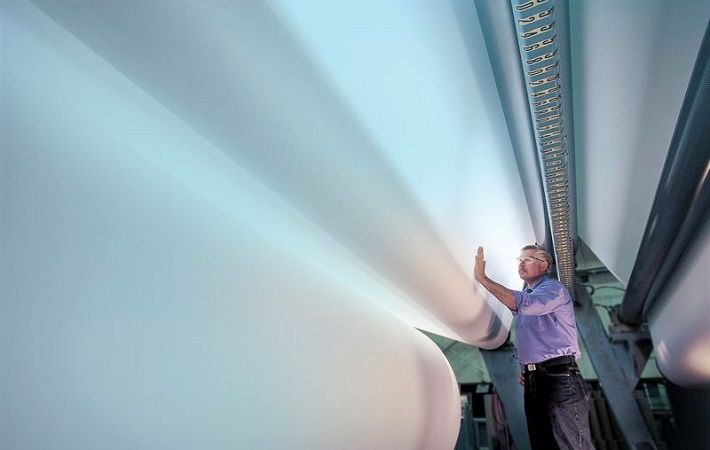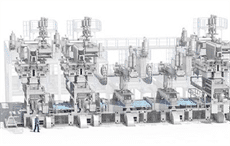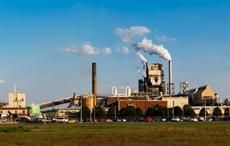
Moreover, the company’s sold production increased by 6 per cent to 1,672,000 tons, driven by good customer activity as the global economic recovery continued, Ahlstrom-Munksjo said in its Sustainability Report 2021.
At the end of the reporting period, Ahlstrom-Munksjo’s Holding’s net indebtedness was €2,084.2 million, translating into a net indebtedness to an adjusted EBITDA ratio of 3.6.
In addition, the company aims for sales from new products launched during the last three years to reach 15 per cent by 2025. In 2021, 12 per cent of sales came from new products launched during the last three years. The company’s expenditure on R&D was approximately €27 million. The figure does not include technical product development costs carried out in close cooperation with customers.
“In 2021, business activity remained on a good level across Ahlstrom-Munksjo businesses as the global economic recovery continued despite the resurgence of the pandemic. Net sales increased to a record level thanks to higher selling prices and delivery volumes. As a matter of fact, sales volumes in nearly all Ahlstrom-Munksjo businesses exceeded the pre-pandemic levels. I’m particularly pleased with how well Ahlstrom-Munksjo succeeded in raising its selling prices and delivering on the transformation initiatives, which contributed to the record high comparable EBITDA. The favourable business environment also created bottlenecks in the supply chain of certain raw materials and the availability of transport. Ahlstrom-Munksjo managed these challenges however quite well and its manufacturing suffered only slightly,” Hans Sohlström, president and CEO, Ahlstrom-Munksjo, said.
The Sustainability Report 2021 also outlined the impact of its smart solution, EcoDesign Tool – a tool Ahlstrom-Munksjo developed to assess new products from a sustainability and product life-cycle perspective. Eighty-three per cent of the new products had a positive score, meaning their environmental impact is lower than a reference products. Some of the materials contribute to the ongoing electrification, some to a circular society, while others protect us from viral and bacterial organisms.
In 2021, renewable fibres constituted 96 per cent of the total fibre volume. The fibres used in Ahlstrom-Munksjo smart solution include pulp (90 per cent) other renewable fibres (6 per cent) and synthetic fibres (4 per cent).
Ahlstrom-Munksjo expects that all suppliers are signatories of its supplier code of conduct or considered compliant. At the end of 2021, 93 per cent of fibre suppliers had signed the supplier code of conduct or were considered compliant. At the end of 2021, 85 per cent of raw material costs, corresponding to approximately 160 suppliers, were evaluated through supplier risk assessment, the report added.
The company also said its target for 2021 to 2025 period is to reduce CO2 Scope 1 and Scope 2 emissions by at least 15 per cent. In 2021, the Scope 1 emissions were 1,459 thousand tons and Scope 2 carbon dioxide emissions were 571 thousand tons.
Ahlstrom-Munksjo aims for a continuous reduction in energy use per gross ton production. In 2021, total energy use in millions GJ was 43.3. Energy consumption per ton of net saleable product decreased by 3.0 per cent to 25.2 GJ/ton.
The company also strives to reduce waste to landfill. Waste (hazardous non-recoverable) per ton of net saleable product increased by 6.4 per cent in 2021 to 7.3 per cent per ton. In 2021, a total of 125,986 tons of waste was generated, compared with 111,283 tons in 2020, the report added.
Fibre2Fashion News Desk (SF)

